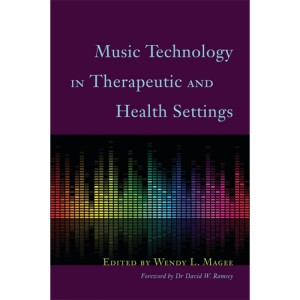Antidepressant Medications: What are they?
- You’ve been feeling low or irritable for most of the day, every day for two weeks or more. You might have found yourself worrying about past or future events for long periods of time, or simply feeling sad, cross or tearful. Sometimes it’s hard to recognize a gradual change – have others noticed that you don’t seem your usual self?
- You’ve lost interest in activities that you used to enjoy. Perhaps you have been seeing less of your friends or family recently, have stopped going to the gym, or cooking balanced meals. This is really about recognizing changes in what’s normal for you – no one is saying you have to exercise five times a week or eat your greens, but changes in your routine can offer concrete indications that your mood is changing.
- You are struggling to concentrate. You might notice that you struggle to focus when reading or watching television, for example, or to follow the thread of a spoken conversation. This could be affecting your performance at work, or limiting your ability to perform routine tasks such as food shopping. Again, we are looking for a change in what’s normal for you, so if concentration has always been something you find tricky there is little cause for concern.
In three words I can sum up everything I’ve learned about life: it goes on.
– Robert Frost
Depression: Not Just for Girls?
- You’ve been feeling low or irritable for most of the day, every day for two weeks or more. You might have found yourself worrying about past or future events for long periods of time, or simply feeling sad, cross or tearful. Sometimes it’s hard to recognize a gradual change – have others noticed that you don’t seem your usual self?
- You’ve lost interest in activities that you used to enjoy. Perhaps you have been seeing less of your friends or family recently, have stopped going to the gym, or cooking balanced meals. This is really about recognizing changes in what’s normal for you – no one is saying you have to exercise five times a week or eat your greens, but changes in your routine can offer concrete indications that your mood is changing.
- You are struggling to concentrate. You might notice that you struggle to focus when reading or watching television, for example, or to follow the thread of a spoken conversation. This could be affecting your performance at work, or limiting your ability to perform routine tasks such as food shopping. Again, we are looking for a change in what’s normal for you, so if concentration has always been something you find tricky there is little cause for concern.
In three words I can sum up everything I’ve learned about life: it goes on.
– Robert Frost

Published! – On Music Therapy and Technology
I have the honor to be featured in Dr. Wendy Magee’s new book called Music Technology in Therapeutic Health Settings, published by Jessica Kingsley Publishers, one of the top publishing companies in the field .
Dr. Wendy Magee is a world renown professor, researcher and music therapist. For this project, she recruited a number of music therapists currently doing breakthrough work with music technology, and asked each to write a chapter about it.
I wrote chapter 15. Garageband as a Digital Co-Facilitator: Creating and Capturing Moments with Adults and Elderly People with Chronic Health Conditions.
 In this chapter I talk about how I used Apple’s music software Garageband in a music therapy group I ran for Spanish speaking registrants at an adult day health center in Bronx, NY. This was one of the many programs I had the opportunity to design and implement while working with the Institute for Music for Neurologic Function. The group recorded a full album of original songs as part of their creative therapeutic process.
In this chapter I talk about how I used Apple’s music software Garageband in a music therapy group I ran for Spanish speaking registrants at an adult day health center in Bronx, NY. This was one of the many programs I had the opportunity to design and implement while working with the Institute for Music for Neurologic Function. The group recorded a full album of original songs as part of their creative therapeutic process.
Perhaps my central argument is that technology not only can facilitate musical, creative and therapeutic processes, but also help adults and elderly feel connected to the current trends in the world surrounding them. In this group in particular, members have at least three barriers that are potentially isolating: culture, age and health related. The use of technological devices such as laptops and ipods may at least partially diminish a little bit of each.
A number of participants in the program reported feeling more connected to their younger family members after gaining a better understanding of current technology related cultural trends. They were also able to work together relying on each other’s strengths to minimize their weaknesses. A stroke survivor with a speech deficit was able to thrive in the group due to her intact memory, while a woman with early stages of dementia was able to utilize her great diction to contribute to the group in spite of her deteriorating memory skills.
With the use of technology we were able to capture the meaningful moments we created, maximize them and reflect them back. The production of the album provided the context in which we relied on for guidance and purpose. In the chapter, I describe some techniques implemented to support, fulfill and magnify the creative ideas of the group. Such techniques include overdubbing, multi-tracking, and looping.
I am hoping some of these ideas can add something to the ever present yet increasingly pertinent discussion of technology related issues in the field. What is our role as music therapists/album producers? How much should we add our own aesthetic ideas? How much do we ‘fix’ notes and mistakes? What are some counter-indications to the use of technology?
Congratulations to Dr. Wendy Magee for putting together this extremely important book, to Dr. David Ramsey -who I consider my mentor- for his genius foreword, and to all the brilliant music therapists who wrote and participated. I am thrilled to be a part of it!
You may order the book directly at Jessica Kingsley Publishers or at Amazon.
Learn More
